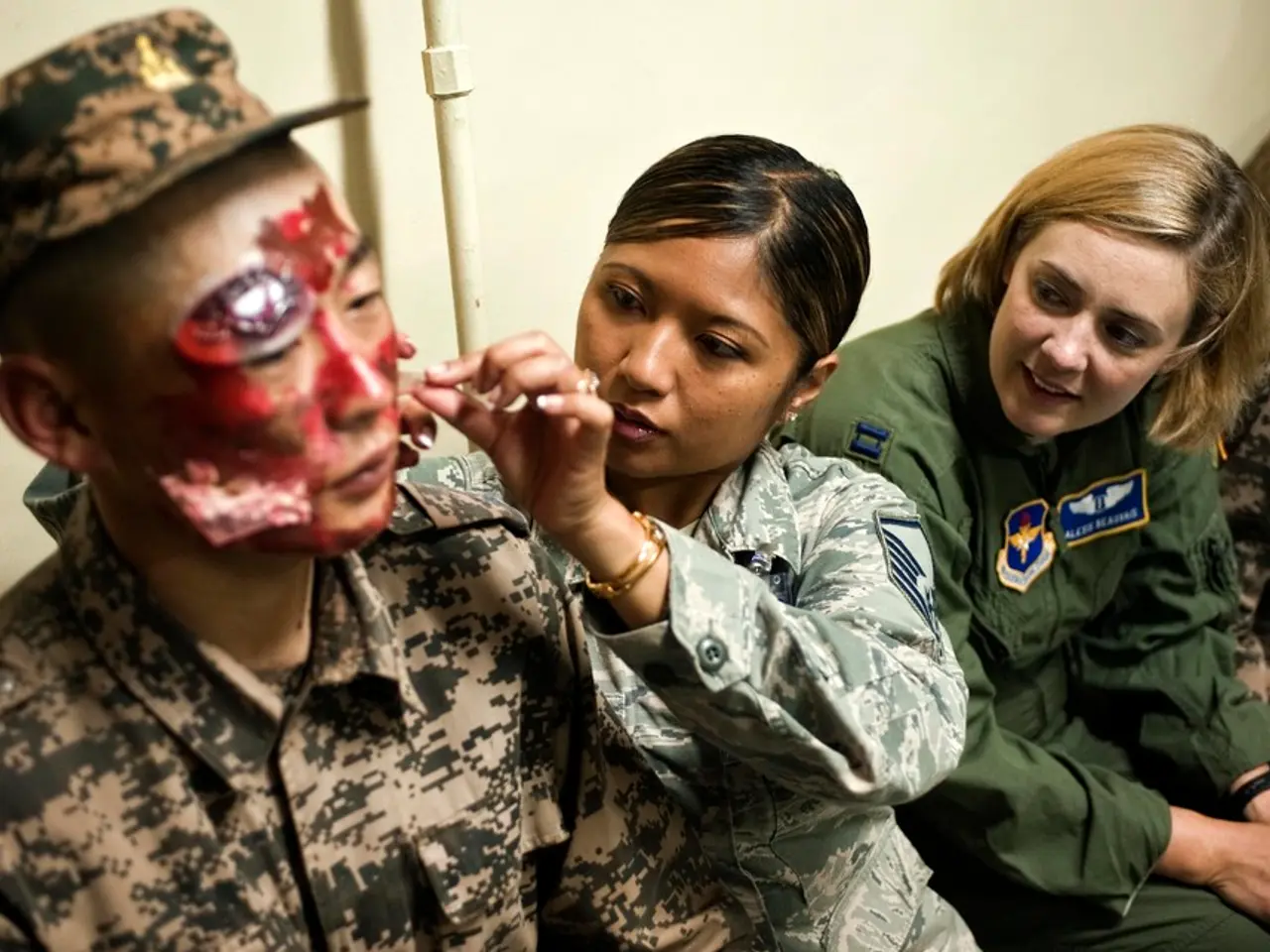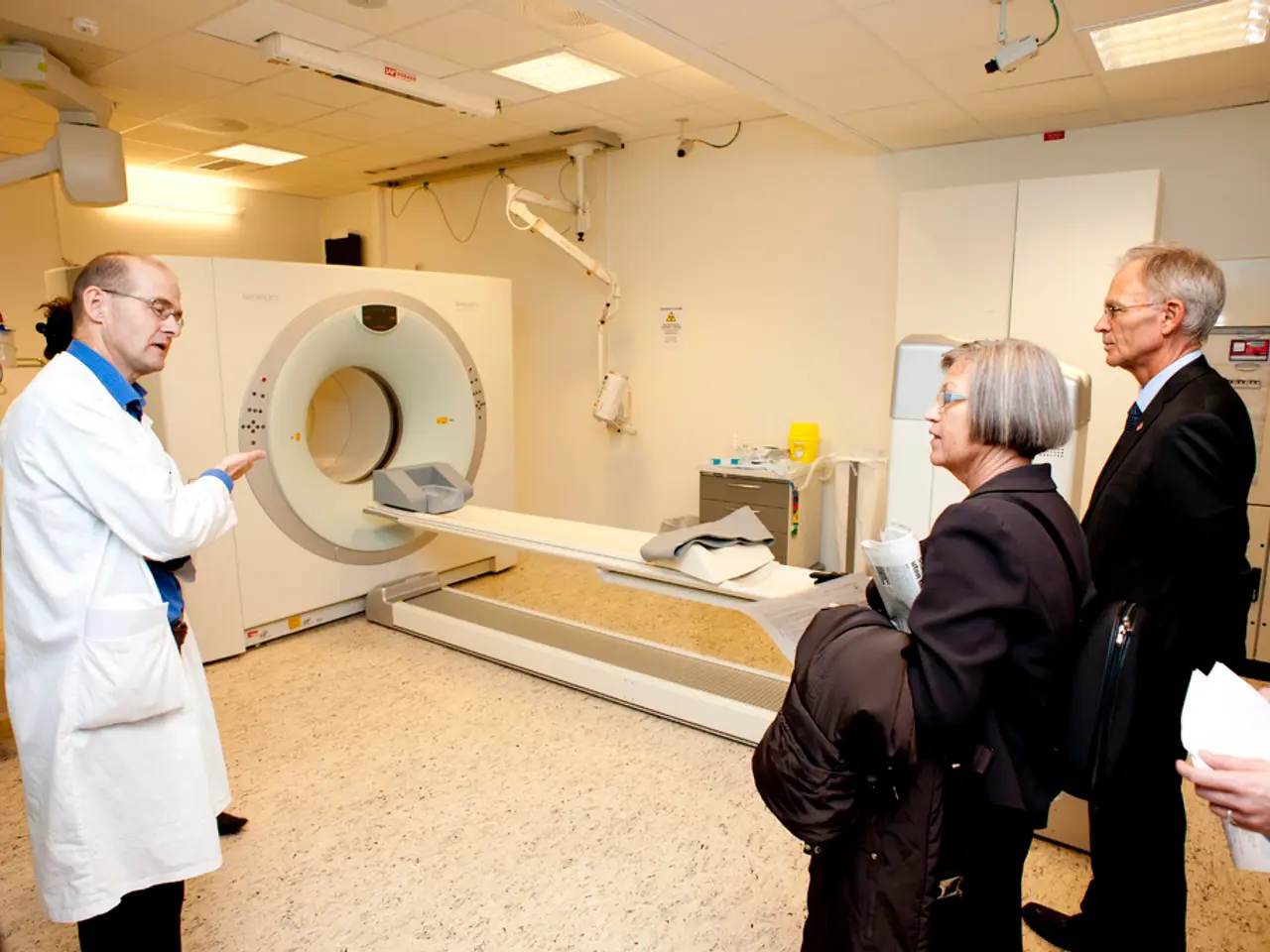Treatment for Acne Pimples: Effectiveness and Potential Adverse Reactions (regarding Minocycline)
Minocycline, an oral antibiotic, is often used to treat moderate to severe inflammatory acne, particularly deep, painful, and widespread breakouts. A 2012 study found minocycline effective for such cases due to its ability to reduce the population of acne-causing bacteria and calm inflammation [3]. However, minocycline is not typically prescribed for purely non-inflammatory acne, such as blackheads and whiteheads, as it addresses the inflammatory aspect of acne rather than the non-inflammatory mechanisms [2].
While minocycline can help manage inflammatory acne, it is not a lifelong solution. Long-term antibiotic use raises concerns about bacterial resistance, and acne often recurs after discontinuation. For sustained remission, dermatologists often combine oral antibiotics with topical retinoids or benzoyl peroxide and, in some cases, transition to non-antibiotic therapies [3][5].
Topical retinoids and benzoyl peroxide are first-line treatments for both inflammatory and non-inflammatory acne, particularly for long-term management and prevention of recurrence. Retinoids help with acne by normalizing skin cell turnover, while benzoyl peroxide kills bacteria and reduces inflammation [3][5]. These treatments are often combined with antibiotics for better results.
Other oral antibiotics, such as doxycycline and tetracycline, are also prescribed for inflammatory acne but may have different side effect profiles and dietary restrictions [3]. Minocycline is considered similar in efficacy but may be gentler on the gastrointestinal tract [3].
For women with hormonal acne, oral contraceptives or anti-androgens like spironolactone can be more effective than antibiotics alone [5]. Isotretinoin, a potent oral retinoid, is reserved for severe, refractory acne, but requires close monitoring due to significant side effects [5].
Alternative or adjunct treatments with promising efficacy and possibly fewer side effects include topical retinoids, benzoyl peroxide and salicylic acid, hormonal therapies, herbal and natural combinations, and protocatechuic acid, a natural compound with anti-acne properties. These alternatives are still under investigation but represent a potential future direction with fewer concerns about resistance [1][4].
It is essential to consult a healthcare provider before starting any acne treatment to ensure it is tailored to your specific type and severity of acne, as well as to monitor for side effects and treatment efficacy. Always follow the prescribed dosage and duration, and avoid taking minocycline for longer than prescribed.
Common side effects of minocycline include headache, dizziness, fatigue, mood changes, and dry mouth. Minocycline can cause severe side effects such as harm to an unborn fetus, intestine infection, liver problems, benign intracranial hypertension, and vision loss. Minocycline should not be taken by those taking birth control pills, certain medications (including blood thinners and other antibiotics), or people with a history of intestine infection. Minocycline can cause a person's skin to become sensitive to the sun, so extra sun protection is necessary.
If home care and over-the-counter treatments do not improve acne, or if a person has severe acne, they should see a dermatologist.
- In addition to minocycline, other antibiotics like doxycycline and tetracycline are also used to treat inflammatory acne, each having its own side effect profile and dietary restrictions.
- For long-term management and prevention of acne recurrence, topical retinoids and benzoyl peroxide are often the first-line treatments, working by normalizing skin cell turnover and killing bacteria respectively.
- Although minocycline is effective for treating moderate to severe inflammatory acne, it's not typically prescribed for non-inflammatory acne like blackheads and whiteheads.
- In some medical-conditions, such as hormonal acne, oral contraceptives or anti-androgens like spironolactone may be more effective than antibiotics alone for managing acne symptoms.
- Sustained remission from acne can be achieved by combining oral antibiotics with topical retinoids or benzoyl peroxide, and in some cases, transitioning to non-antibiotic therapies for long-term health-and-wellness.
- It's crucial to consider skin-care options carefully, consulting a healthcare provider to ensure the chosen treatment is suitable for one's specific type and severity of acne, and to monitor for side effects and treatment efficacy.




